Interview: Writer/Performer Romy Nordlinger on GARDEN OF ALLA: The Alla Nazimova Story at Theatre West
West Coast premiere July 7-23
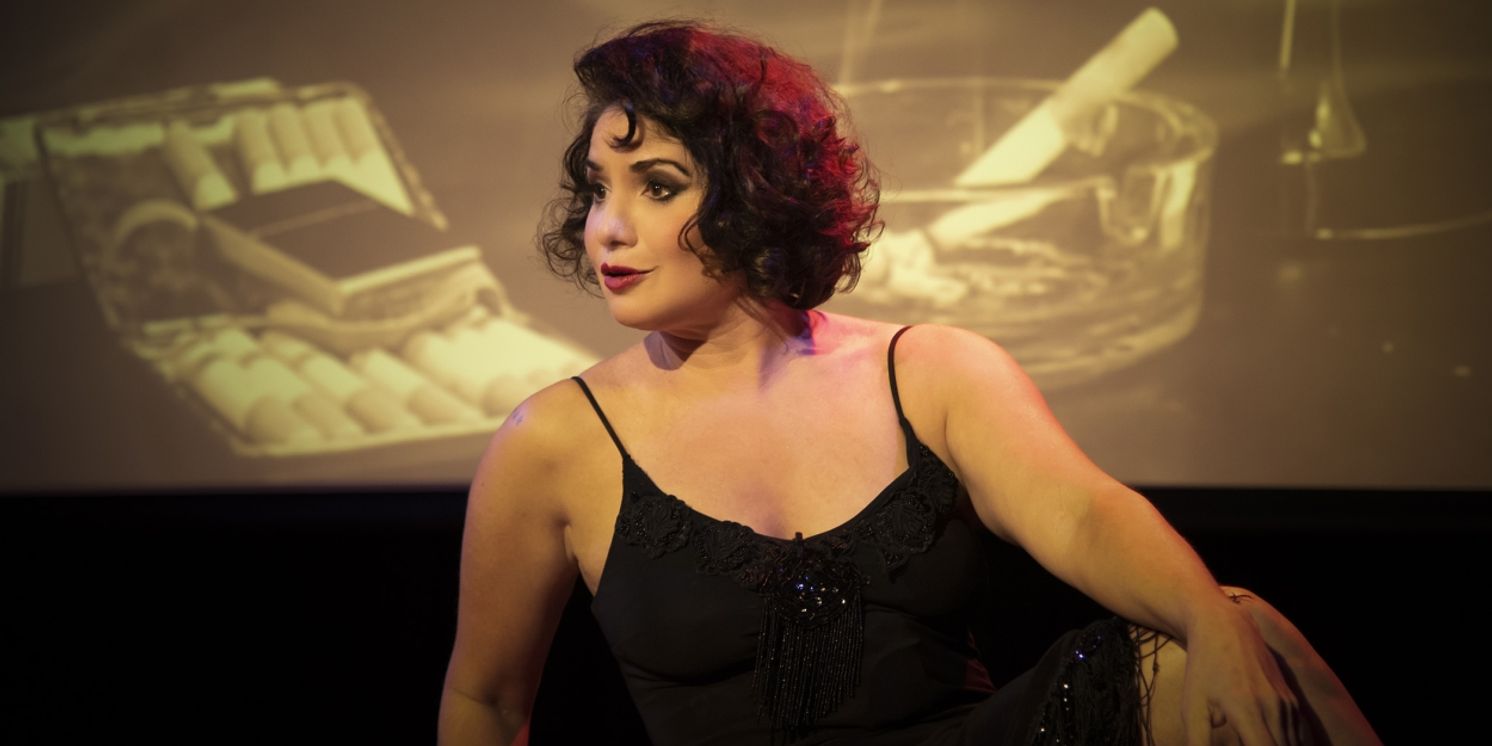
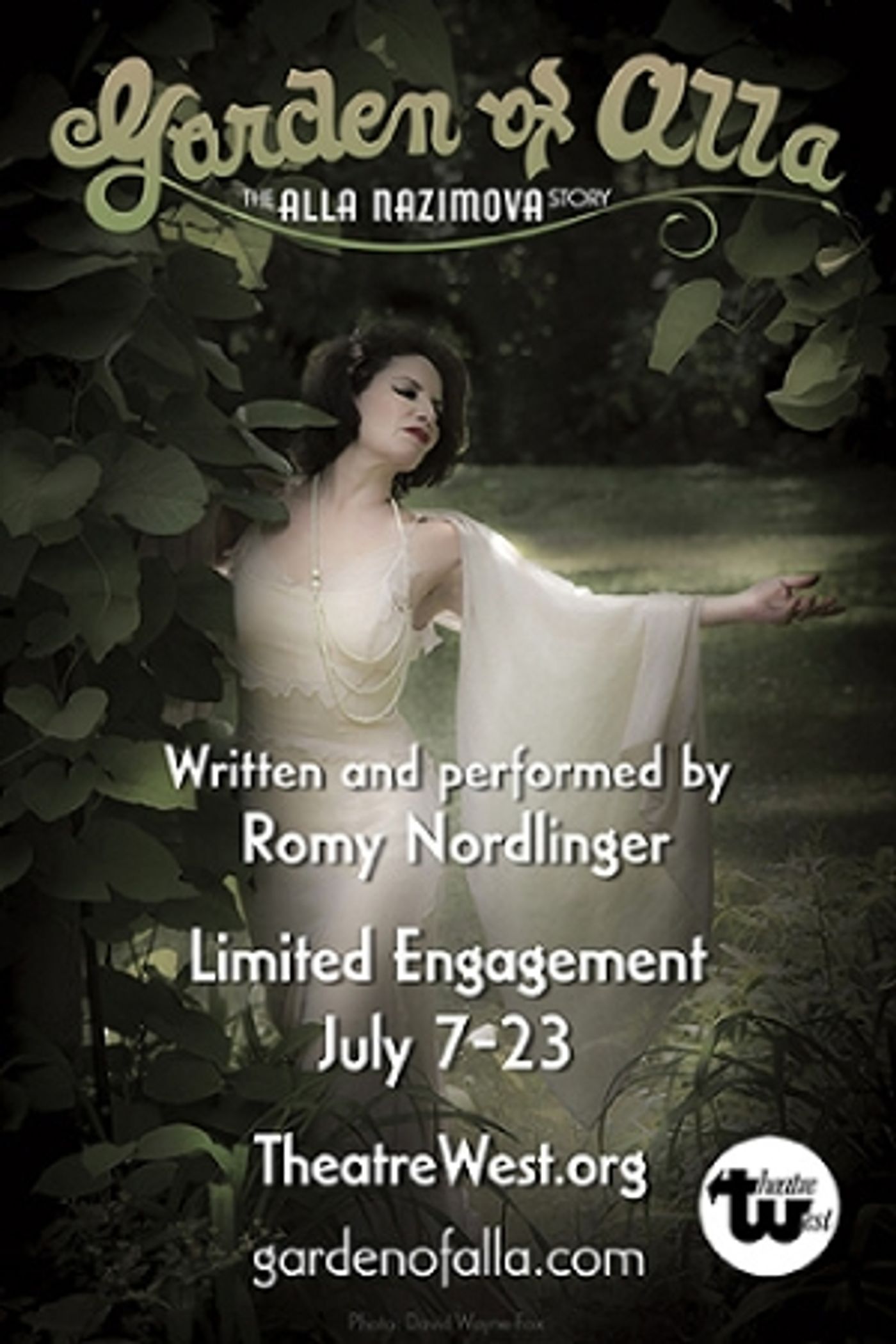
During the Roaring 1920s until its closing on July 27, 1959, West Hollywood’s landmark Garden of Allah Hotel on Sunset Blvd. hosted the Hollywood elite looking to have a great time socializing and mingling without the prying eyes of the media or autograph seekers in their faces, or their beds for that matter. The original manor was built by William Hay, then purchased by stage and screen actress Alla Nazimova in 1919. A few years later as her screen career derailed, she added a complex of 25 rental villas around the original house to generate much-needed income for herself as well as a safe haven for the Hollywood elite. After selling the property and returning to her Broadway stage career, cut short due to illness in 1938, Nazimova returned to reside in villa 24 until her death in 1945. But what stories those walls could tell about all the famous people, parties, and shenanigans that went on behind closed doors – or in the garden for that matter!
I decided to speak with Romy Nordlinger, the playwright and performer soon to grace the stage at Theater West in the West Coast premiere of Garden of Alla in which she shares the life of Alla Nazimova, a Jewish immigrant from Tsarist Russia who became a Broadway and silent film superstar, visionary Hollywood director and producer, LGBTQIA trailblazer, and creator of the hotel which became world famous on many levels, both famous and infamous.
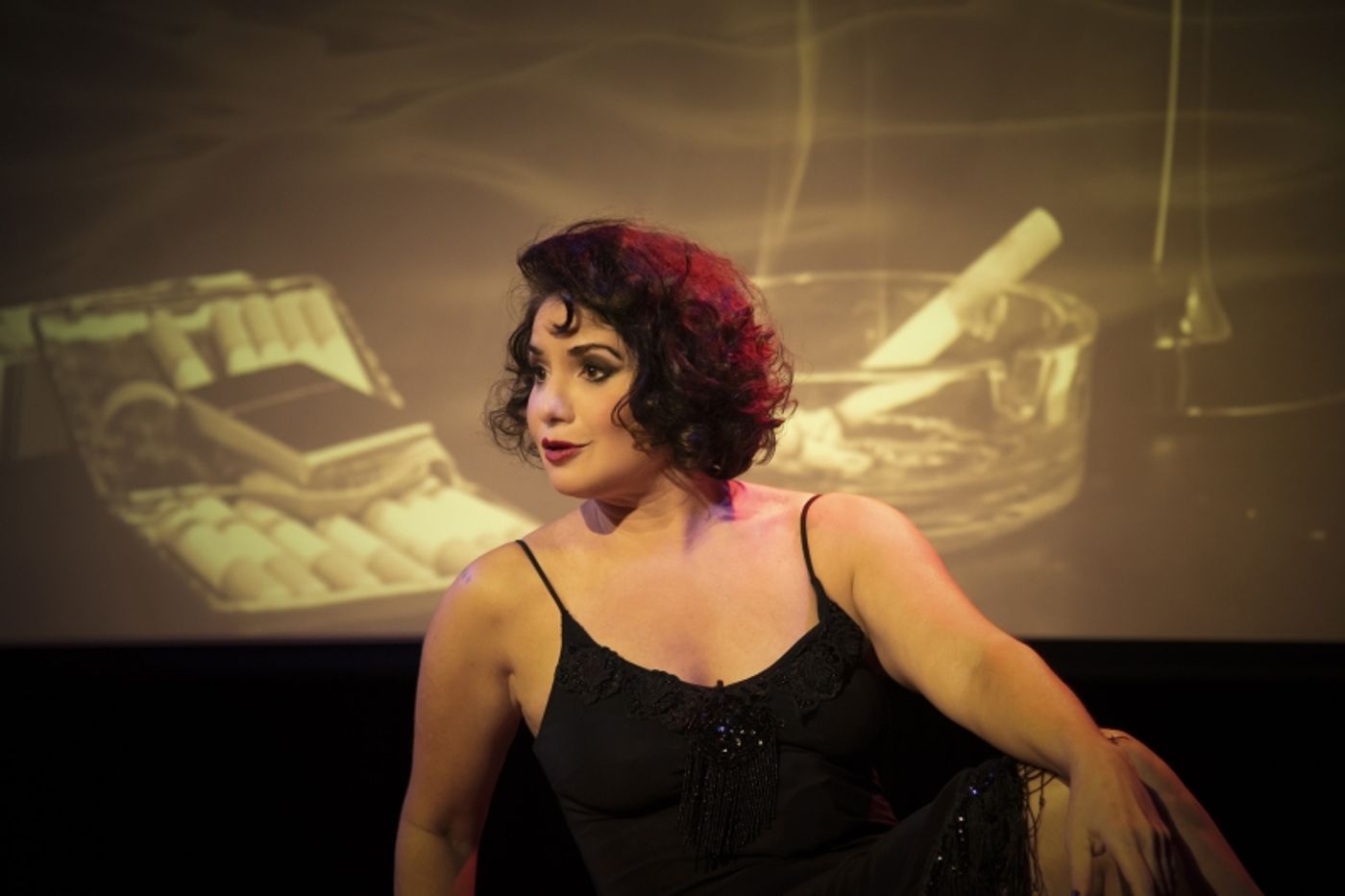
Romy Nordlinger in Garden of Alla: The Alla Nazimova Story. Photo by David Wayne Fox
Thank you for speaking with me about the upcoming opening of your play. When did you first become interested in the life of Alla Nazimova?
Thank you for having me! My dear friend and brilliant theatre historian, Mari Lyn Henry, was creating a performance called Stage Struck which was comprised of monologues based upon the lives of famous actresses throughout history. These were actresses who were meteoric in fame during their lifetimes, but most of us are not aware of their stories. She suggested several actresses whom I could research to write about but, although they were brilliant and interesting, none of them really resonated with me - they all seemed a bit too blonde and consumptive. Then she had a eureka moment and exclaimed, “I know who it is for you! Alla Nazimova!” Mari Lyn had also been the head casting director at ABC for over 13 years, so she knew when a casting fit was right. And boy, was she ever right on this one! My beloved Mari Lyn Henry died on June 24, 2023. I was grateful to be one of the five theatre women (all dear friends of Mari Lyn and mine) who formed a coalition, built of heart and strength, to help her through her brave struggle with cancer for the past four-and-a-half months so she could die with dignity and surrounded by love. That is the meaning of true ensemble! I will miss her greatly.
The true meaning friendship. What triggered you to write the play?
After reading the consummate biography on Nazimova by Gavin Lambert, I was immediately captivated. I couldn’t put the book down! I couldn’t believe that this legendary force of nature, Alla Nazimova, was not a household name. How in the world had her story seemingly been so widely overlooked? She had a Broadway theatre named after her by The Shuberts - yet not even a plaque remains to commemorate it on 39th street. People walk by the Irish pub and parking lot everyday with no knowledge that it had ever been there. And there had been lines for blocks and blocks for audiences clamoring to see her. She made The Shuberts 4 million dollars in sold-out runs – about 125 million dollars in today’s money.

Romy Nordlinger in Garden of Alla: The Alla Nazimova Story. Photo by Adam Jesse Burns
She inspired Tennessee Williams, Eugene O’ Neill, Noel Coward (amongst many others) and helped bring critical acclaim in America to Chekhov, Strindberg and Ibsen. In silent films, she commanded a salary higher than Mary Pickford’s. Then she went on to become one of the first female directors and producers in Hollywood with her own production company. In 1916! Unheard of.
And she was an LGBTQ+ trailblazer, an immigrant who fled Tsarist Russia and an abusive childhood who became a talent as meteoric in popularity as Madonna. We are the stories we tell, and now, more than ever, when school curriculums and the pendulum are swinging towards censorship of anything LGBTQ+ or female empowered or “other,” basically anything that is not the white male’s story, we need to unveil these stories and take back our collective history. We are standing on the shoulders of giants! Why was Alla Nazimova’s story stolen from her? I knew then that I must tell her story.
Is there something about Nazimova that made you want to play the part yourself? Or did you write it with that in mind?
I did write the part of Alla Nazimova to play the part. This largely because I knew I’d be performing it as a monologue for my friend’s performance of Stage Struck. But I felt such affinity for Nazimova and such a kindred spirit in her, that playing her was only natural - not only her heredity, which is that of a Russian Jew from Belarus like myself (second generation), but her temperament. She was very empathic, full of heart, yearning, searching, and love for her art; always full of daring and vigor. She, like myself, understood her life through the lens of art.
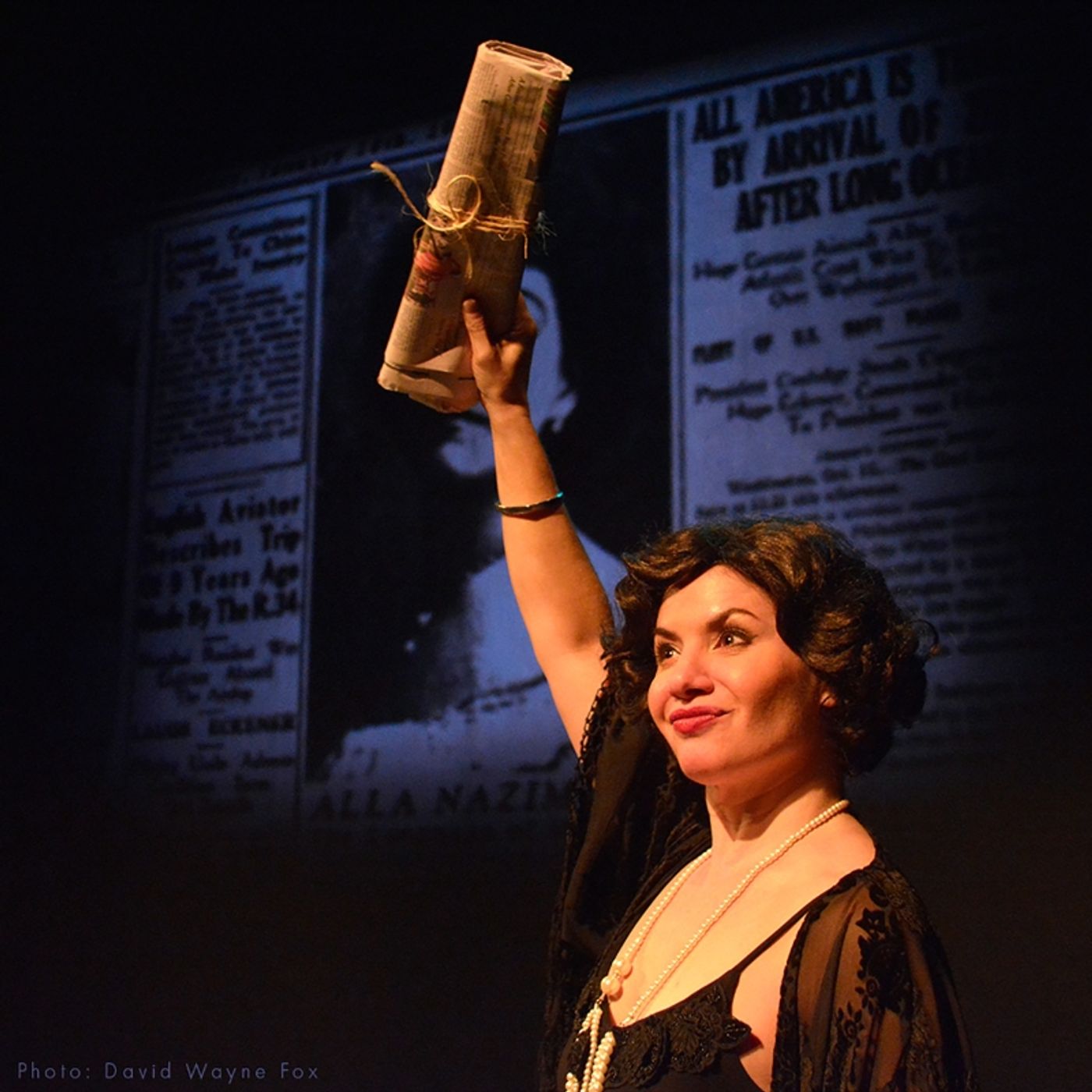
Romy Nordlinger in Garden of Alla: The Alla Nazimova Story. Photo by David Wayne Fox.
When she was working on a project that she was imbued with passion for and that she thought was important and conveyed the human condition, she was happy and content. When she was not (which was frequent when she was the star of countless fluffy silent films), life didn’t make sense to her. That is what impelled her to start her own production company. Most of all, I related to and am inspired by her ability to believe in herself on her own terms. That’s how she, an abused penniless, Jewish child from Tsarist Russia, escaped and created herself. Her greatest role as Alla Nazimova!
After she lost all her money, she lived as a guest inside what was formerly her mansion, her Garden of Allah on Sunset Boulevard. And even then, she flourished. She described looking out the window and feeling content to see the lemon trees she’d planted, to feel the sun on her face, to have the time to write and reflect. She said, “Life is what you make of it.” Now that, I thought, is a great woman. A survivor. She knew it wasn’t the outside circumstances that define who you are or what your worth is; it’s inside of you. When I have those moments of self-doubt or before I go on stage I think “What would Nazimova do?” That always keeps me heading in the right direction. My own direction.
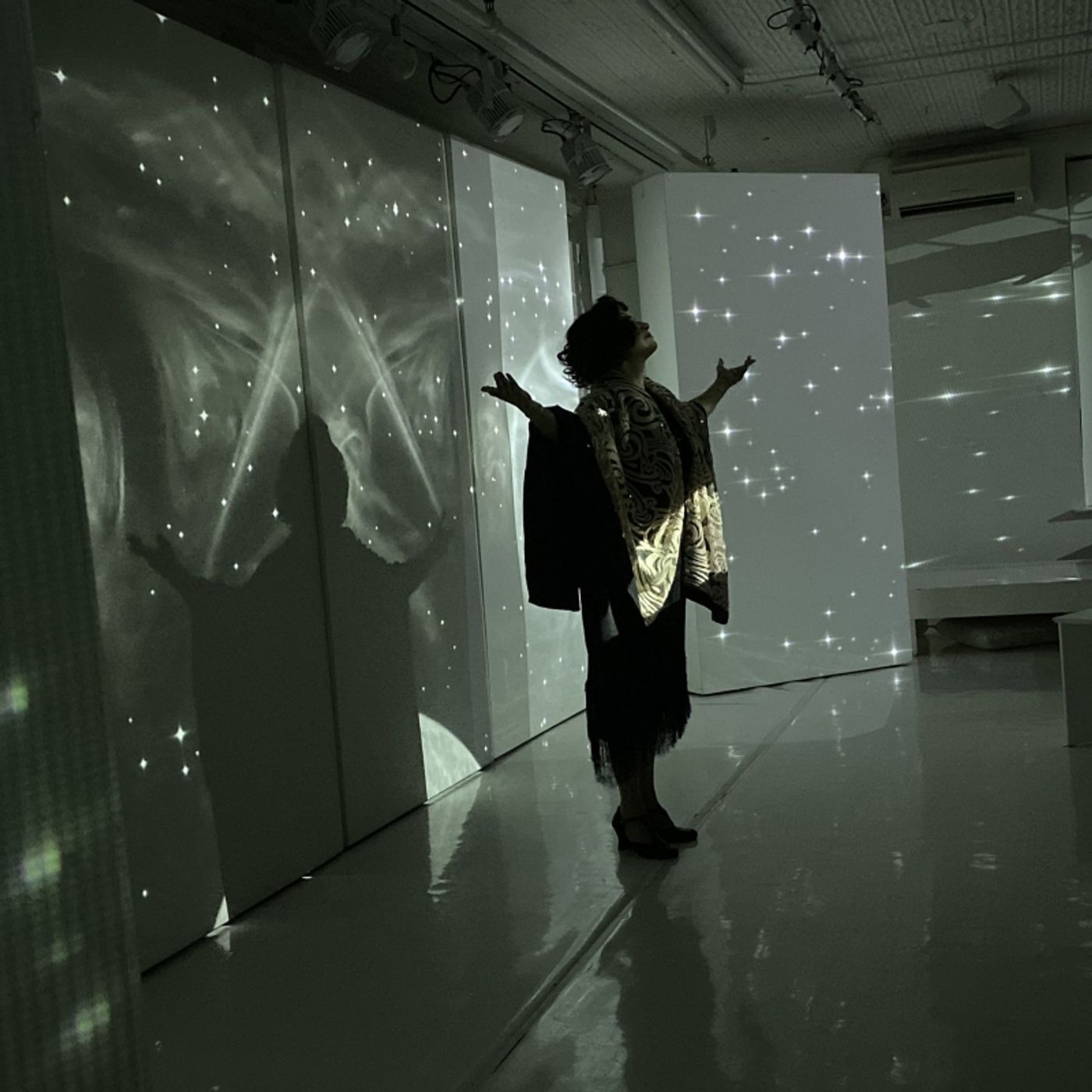
Romy Nordlinger in Garden of Alla: The Alla Nazimova Story. Photo by Adam Jesse Burns
It’s a great lesson for everyone. How did you go about researching her and the hotel’s history?
After reading the very extensive Gavin Lambert biography, I read everything I could on Nazimova. There’s a wealth of articles and information online. You can really go down a rabbit hole reading about her – it’s all fascinating! And an abundance of literature and her letters and excerpts from journals. I also watched all her films that are preserved, of which there’s a wealth. I modeled her accent - Russian with a mid-Atlantic old star mix - off two of her later films in which she actually spoke.
I also, very fortunately, got to know the founders of the Alla Nazimova Society in Los Angeles: Martin Turnbull and Jon Ponder. In addition to their exhaustive research on all things Nazimova and her Garden Of Allah, they are wonderful people. Martin (who also wrote the popular Garden Of Alla mystery book series), introduced me to Mary Ellen Marshall, who is the great niece of Glesca Marshall, Alla’s longtime partner until the very end. Mary Ellen was so giving in sharing family pictures and stories that I treasure, and that really helped me create an inside story of this fascinating woman.
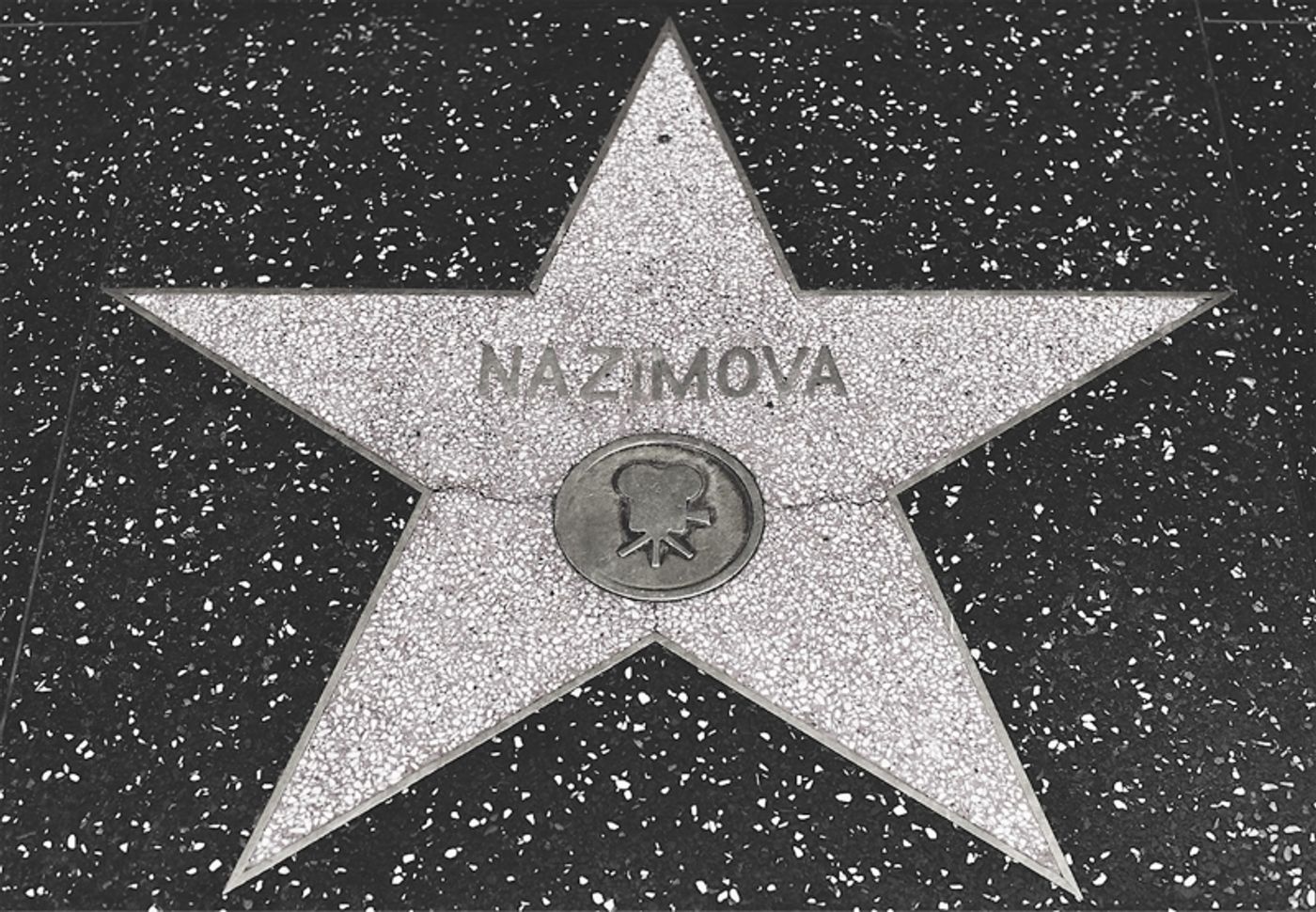
Alla Nazimova’s star on Hollywood Boulevard
What were some of the most surprising things you found out about her during your research?
I was absolutely shocked to find out how much money Nazimova had made. A fortune. How brilliant her career had been. How prolific and meteoric! I was surprised to hear that she had studied under Stanislavsky at the Moscow Art Theatre and that, although her silent films were heralded as being over the top, she was known as the queen of naturalism in acting, ushering in a new era. Eugene O’Neill said that she showed him what true modern theatre was, where truth might live. Tennessee Williams said of her, “When I first saw Nazimova perform, she was so shatteringly powerful I could not stay in my seat. It was then I knew I must become a playwright.” I was also surprised that she was gay/bisexual, in a time when that was unheard of. And that her Garden Of Allah, her mansion on Sunset Boulevard, hosted the literati and glitterati in basically the greatest, seemingly never-ending, party of all time!
Who were some of the most famous people that stayed (and played) in the hotel that are in your play?
It was easier to say who didn’t check in to the Garden Of Allah than who did! The guest list is legendary! That it is why it was dubbed “The Camelot Of Hollywood.” A place where the stars could come and have hedonistic secret wild parties. and that was also host to the great writers, directors, producers. and musicians. I would give about anything just to have been a fly on the wall to be at one of those parties! Just a few of the hundreds and hundreds of legendary visitors to the Garden Of Alla include Joan Crawford, Errol Flynn, Gary Cooper, Stravinsky, Cole Porter, the Marx Brothers, D.W. Griffiths, Tallulah Bankhead, Greta Garbo, Marlene Dietrich, Gary Cooper, Rudolph Valentino, Clara Bow, Dorothy Parker, Ronald Reagan, Bogie and Bacall (while having their secret affair), F. Scott Fitzgerald, Thomas Wolfe, Benny Goodman, Frank Sinatra…. I could keep going on but there isn’t the space in this interview. Come see the play for some very spicy celebrity stories, and then Google it! You’ll be glad you did.
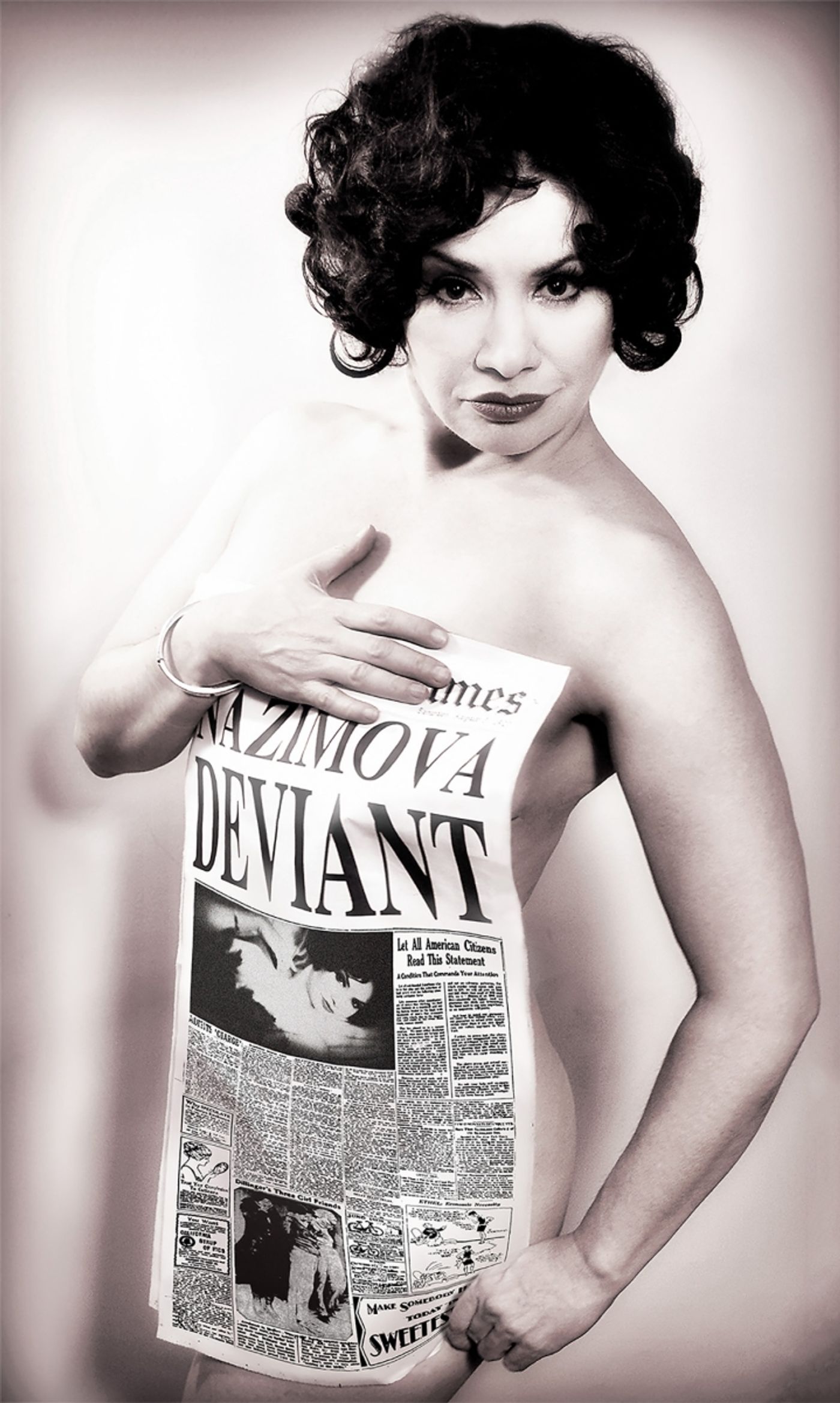
Romy Nordlinger as Alla Nazimova: Photo by David Wayne Fox.
Who were members of her infamous sewing circle at her hotel? And just what were they really sewing?
The Sewing Circle was a euphemism coined at the Garden Of Allah by a group of lesbians and bisexuals that enabled them to have clandestine meetings and “sew.” Some of these guests included such famous figures as Marlene Dietrich, Greta Garbo, Tallulah Bankhead, Joan Crawford, Myrna Loy and Agnes Moorehead... and “sew” many more! You guessed it, they didn’t sew a stitch!
Have you worked with the play’s director Lorca Peress before? How did the two of you first connect?
I met Lorca here in NYC (where we both live) at a wonderful organization called The League of Professional Theatre Women. At one time she was the president of the League, and I always admired her as a person and as an artist greatly. I’d done some readings of hers (that she directed) and I got to know her more as a friend and peer as we were both friends of Mari Lyn Henry. Lorca seemed the perfect person to direct this piece as it’s a multimedia play about a strong woman, as she is!
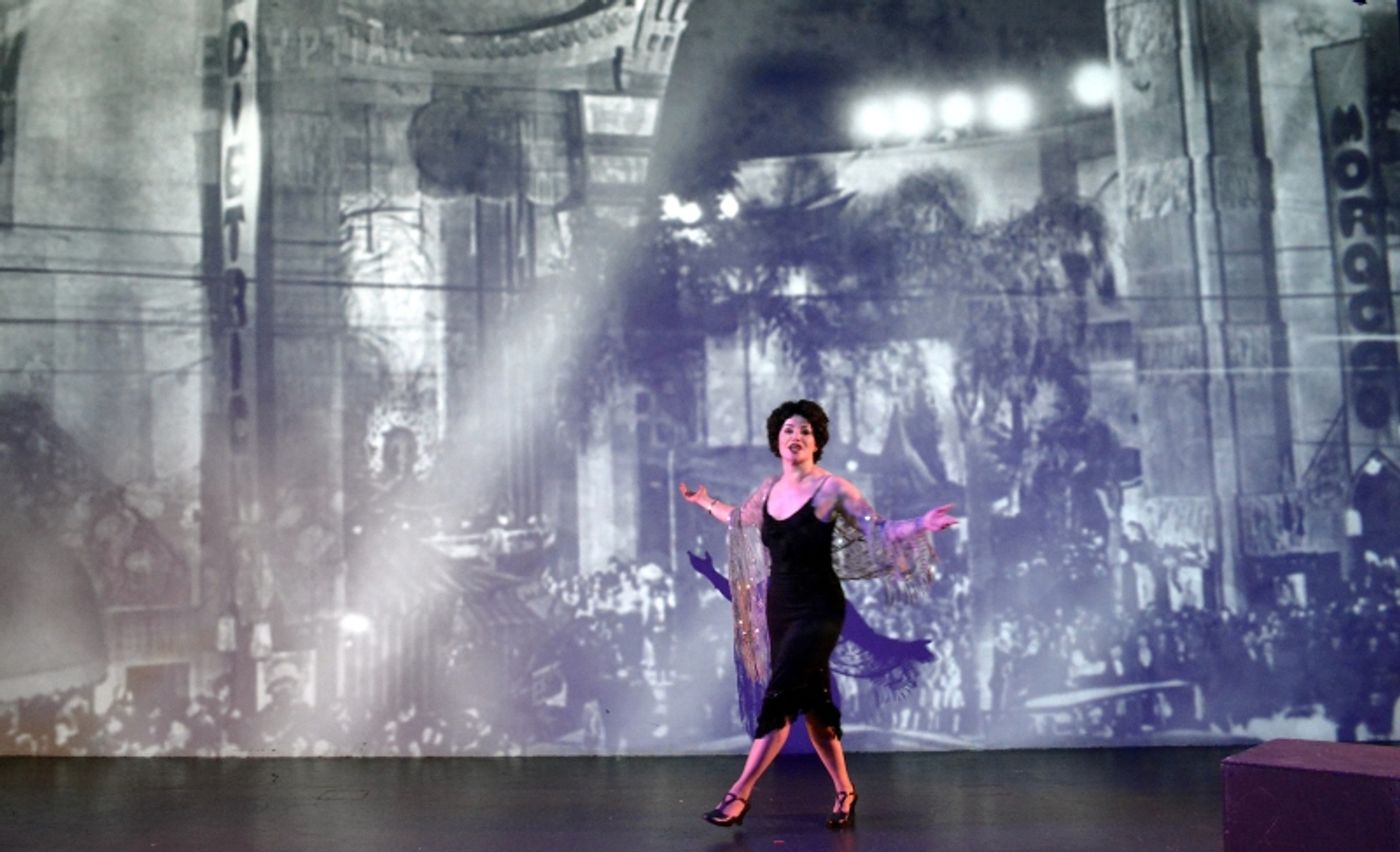
Romy Nordlinger in Garden of Alla: The Alla Nazimova Story. Photo by David Wayne Fox
Lorca also has her own theatre company, called MultiStages, which specializes in multimedia-based theatre and the stories of marginalized groups, and this play fits the bill. It’s been a wonderful collaboration; and it continues! I think the best directors are those that trust you to bring your best and to maximize on that, rather than trying to force concepts or ideas that may not be your strengths, only because they’d envisioned that previously to working together on it. It’s through doing the work, rolling your sleeves up and discovering together on equal terms, that I believe nurtures great work. And you must finally really trust the person with the final project and to know that they are able to see the big picture. I found all these things working with Lorca.
Tell me about how the story is presented on the stage. Are there projected images or screens from Nazimova’s movies or stage appearances shared? Are you the only actor who appears live onstage?
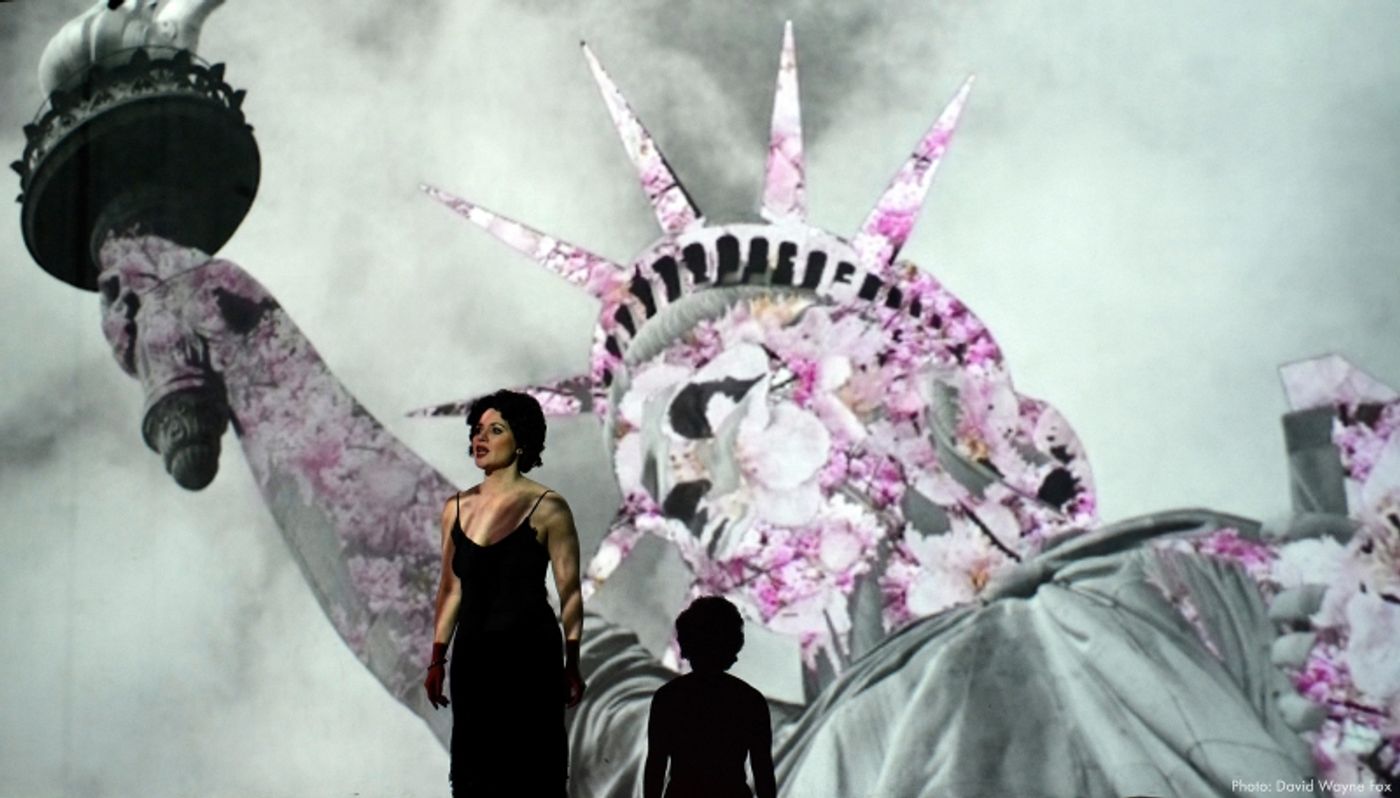
Romy Nordlinger in Garden of Alla: The Alla Nazimova Story. Photo by David Wayne Fox
The play is a hybrid of film and theatre; its story presented as a live silent movie. I am the only performer on stage, enveloped by a backdrop of sumptuous imagery that suggests Nazimova’s life and times from Russia to NYC to Hollywood. The stunning video design is by Adam Jesse Burns, and the haunting and gorgeous original musical score that accompanies it is by Nick T. Moore. There are only a few places where the actual Nazimova is shown in her films. What we most wanted to create, and did, is a panoramic black-and-white view of her life and times that envelops her and moves with her. The conceit is that Nazimova returns from her grave to direct the story of her own life. Since she was a director and filmmaker and also starred in silent films, this naturally encapsulates her life and is the perfect springboard for her story to unfold naturally.
This play is so much a part of your heart and soul. Where else has it been presented before its West Coast premiere here?
The play has been presented regionally at The Kennedy Center (in association with Tonic Theatre Co.) and at Richmond Virginia’s Firehouse Theatre. It’s been seen internationally at the Edinburgh Fringe in an earlier incarnation of the play called Places. In NYC, it’s played at 59E59, Dixon Place, HERE Theatre, Theaterlab, Theater 555, The Players Club and The Cutting Room.
How did audiences in other cities respond to its subject matter?
Audiences everywhere - young, old, gay, straight - seem to be very moved and inspired by Nazimova’s story. Hers is the classic rags to riches story of the underdog and overcoming adversity, which is universal to most of us. Most everyone leaves the theatre saying “why have I never heard of her before?” I think that their seeing that if someone over 100 years ago could do what she did, in a time when it was unheard of, they could do it. It inspires people to be themselves against all odds.
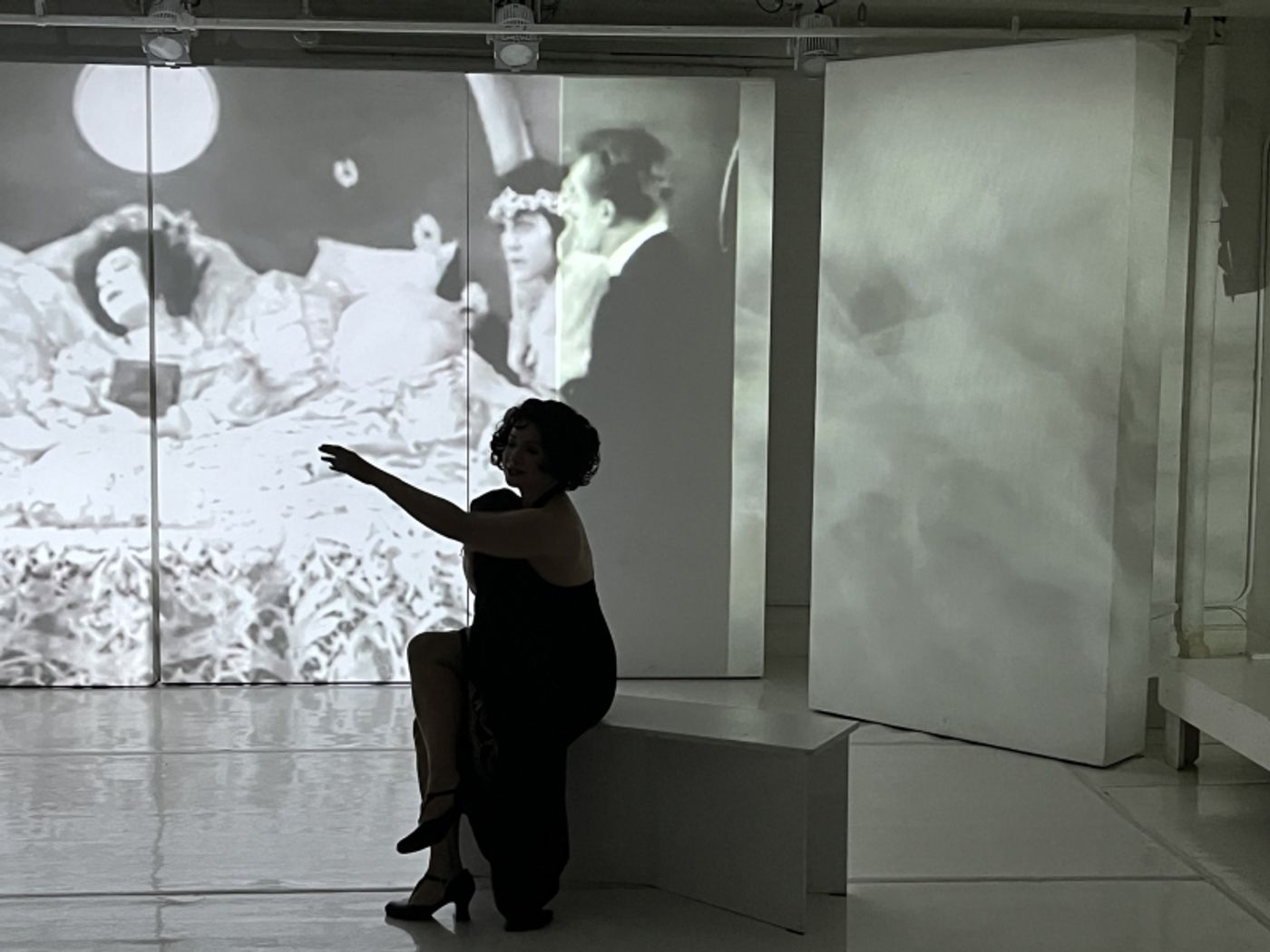
Romy Nordlinger in Garden of Alla: The Alla Nazimova Story. Photo by Lorca Peress
I read that Nazimova was a pioneer fighting against homophobia, sexism, racism, antisemitism, and ageism, battles still being fought almost 100 years later. What do you think inspired her to take up such challenges?
Nazimova didn’t deliberately fight these issues, she simply did so by being herself, by not accepting the claustrophobic limitations of what women were allowed to do in those times, and by damning the torpedoes and going out and getting what she wanted. She followed her heart. She didn’t think about repercussions. The same went for her sexual identity. She said, “I have never thought of myself as a man or as a woman. I don’t identify with either sex” and “I don’t go to bed with the sex; I go to bed with the talent, the essence.” When she was 43, she played the title role of the 14-year-old Salomè and was jeered at for it. She said, “If when I was 14 I could play 44, why not the opposite? You are as old as you feel.” Her trailblazing iconoclastic life was her statement. And she did all this alone, and without a Twitter or Instagram account. It’s remarkable.
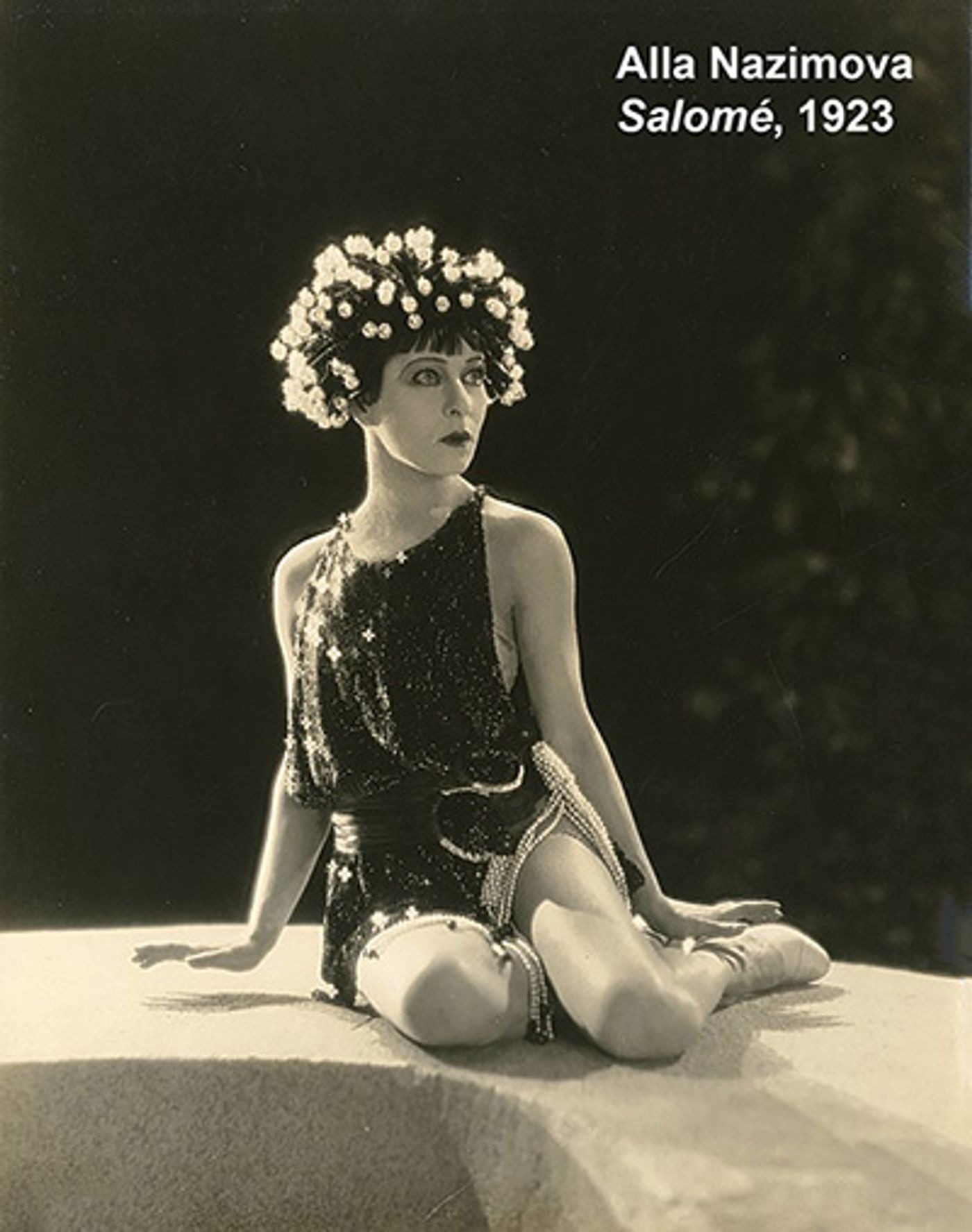
When she spoke out about her lifestyle and beliefs, what ramifications took place?
Nazimova never openly spoke up about her beliefs. She just lived her life. It was just in the doing that she spoke up - and raised quite a ruckus with quite a forceful voice. At first, she was the toast of Broadway and Hollywood, but then, gradually, when her experimental projects went awry and were deemed too experimental since she didn’t adhere to the Hollywood proscription of what entertainment was, she was basically fired and blacklisted from what she called “the boys club” - the powerful group of men that ran the industry. And to a large degree still do. She went too far and had too much power. The amazing thing is that she even got there to begin with. That she had Nazimova Productions, underwritten by the studios where she was given the funding to make her experimental movies with them. She really pushed the boundaries and the envelope. And then, she was pushed out. Left basically penniless. She returned to Broadway and, later, as a well-respected acting coach on Hollywood sets. She also did some talking films later in life, one of which was with Montgomery Clift.
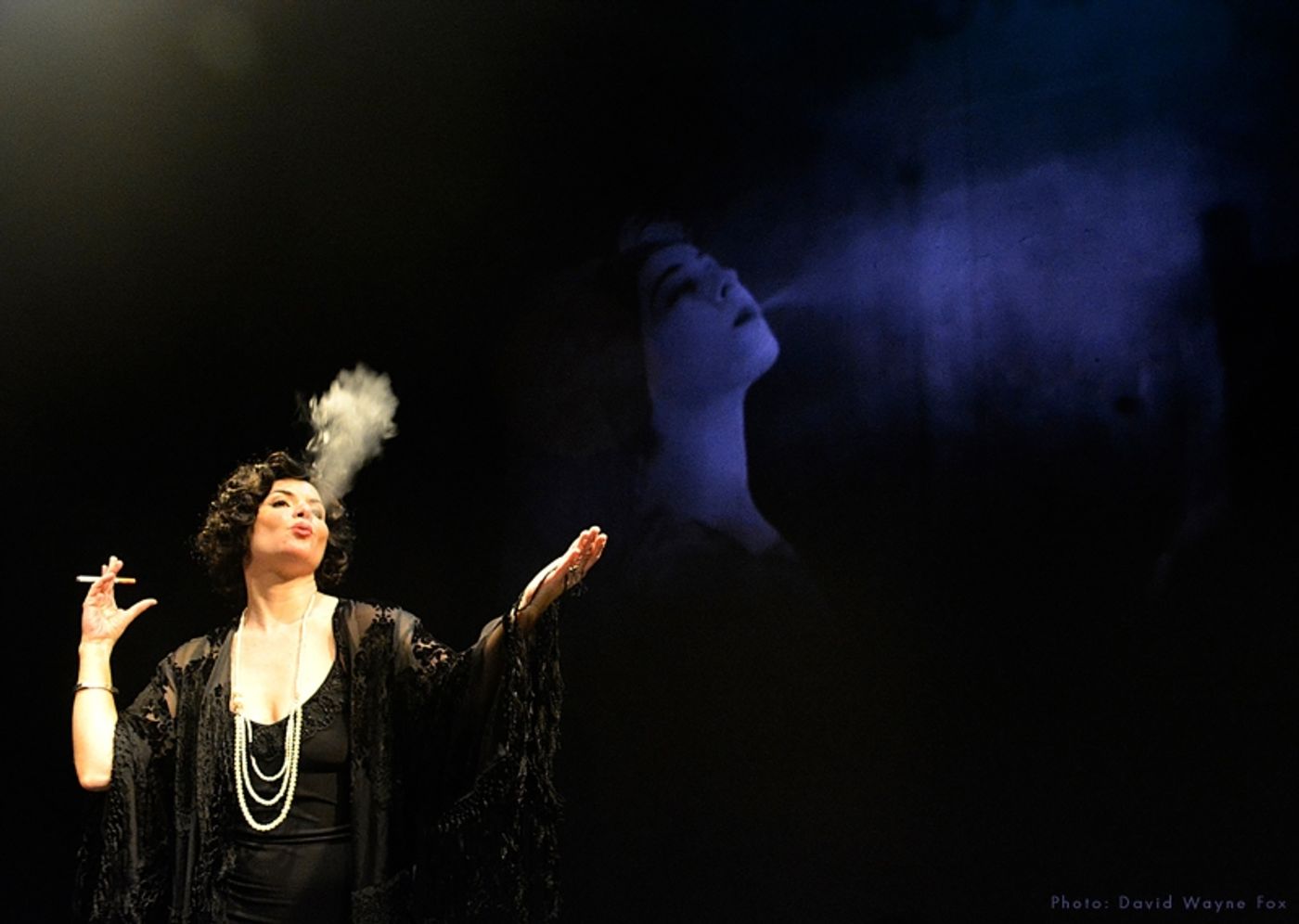
As one of the first women to become a powerful director and producer in Hollywood thanks to her film Salomé, tell me how that film earned its status as a landmark in gay cinema. What gave her the courage to put such a story on to the screen at that time?
Nazimova simply gave herself the permission to make Salomé. She was a very famous film star at that time and commanded an unheard-of salary, so the studios bankrolled it. And she put $350,000 of her own money into it, a small fortune back then. And she lost every penny. The studio said it was too wild and that she demanded too much. It was also rumored that it was an all-homosexual cast, which it was not. She designed it with her former lover, Natacha Rambova, who married Rudolph Valentino after Nazimova introduced them. Together they conspired to make something that was so visually striking that was too wild for the world of 1923. And it is exceptionally wild. The sets (modeled after Aubrey Beardsley paintings), the costumes, the cast. Like nothing you’ve ever seen. It was way ahead of its time, and featured a lot of scantily clad men, some of whom were also gay. Thus, it is heralded as the first full-length art film and a landmark film in LGBTQ+ history.
I think that what most gave Nazimova courage was her striving for expression, meaning and self-discovery. Life and art were the same to her, and if she felt stuck in her art, she was equally stuck and depressed in life. As an artist she was happiest when she was pushing boundaries, doing something that meant something to her, expressing herself. And Salomé is really a lovechild of that passion.
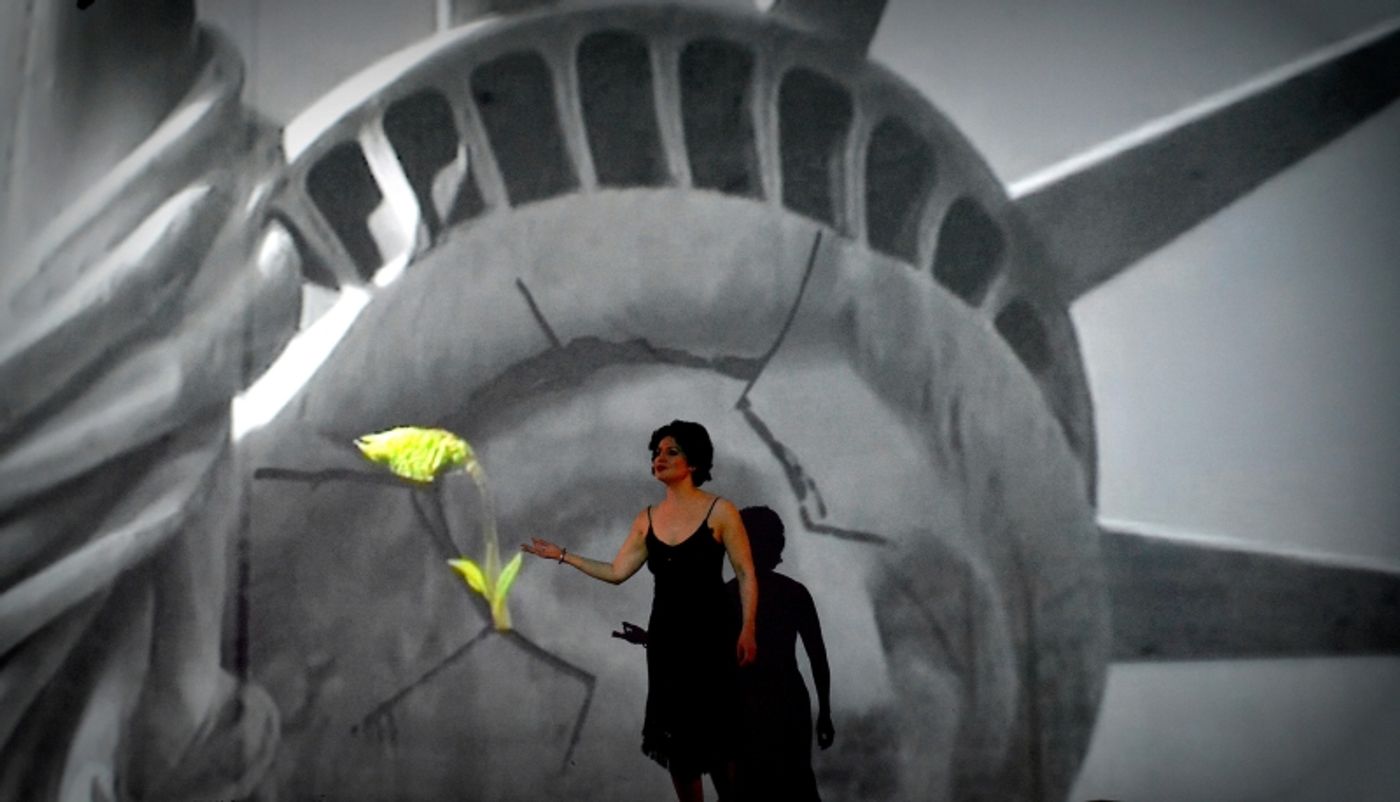
Romy Nordlinger in Garden of Alla: The Alla Nazimova Story. Photo by David Wayne Fox
What lessons or messages from Nazimova’s life and times do you hope audience members take away with them? Have you held talkbacks afterwards to find out?
I want audiences to feel empowered to tell their own stories. That by opening our eyes to the past, we can better see our present. I want to help empower audiences to believe in themselves and know that they have a story worth telling. That they, in themselves, are enough and to not only rely on external approval. I want audiences to know that there is a long heritage of trailblazers whom we are not even aware of, who rose to great heights against all odds. And that if those trailblazers could do it, so can they.
Where are you taking the play after the run here?
I’m not sure of where this play will take me next, but wherever it is, it’s a story worth telling!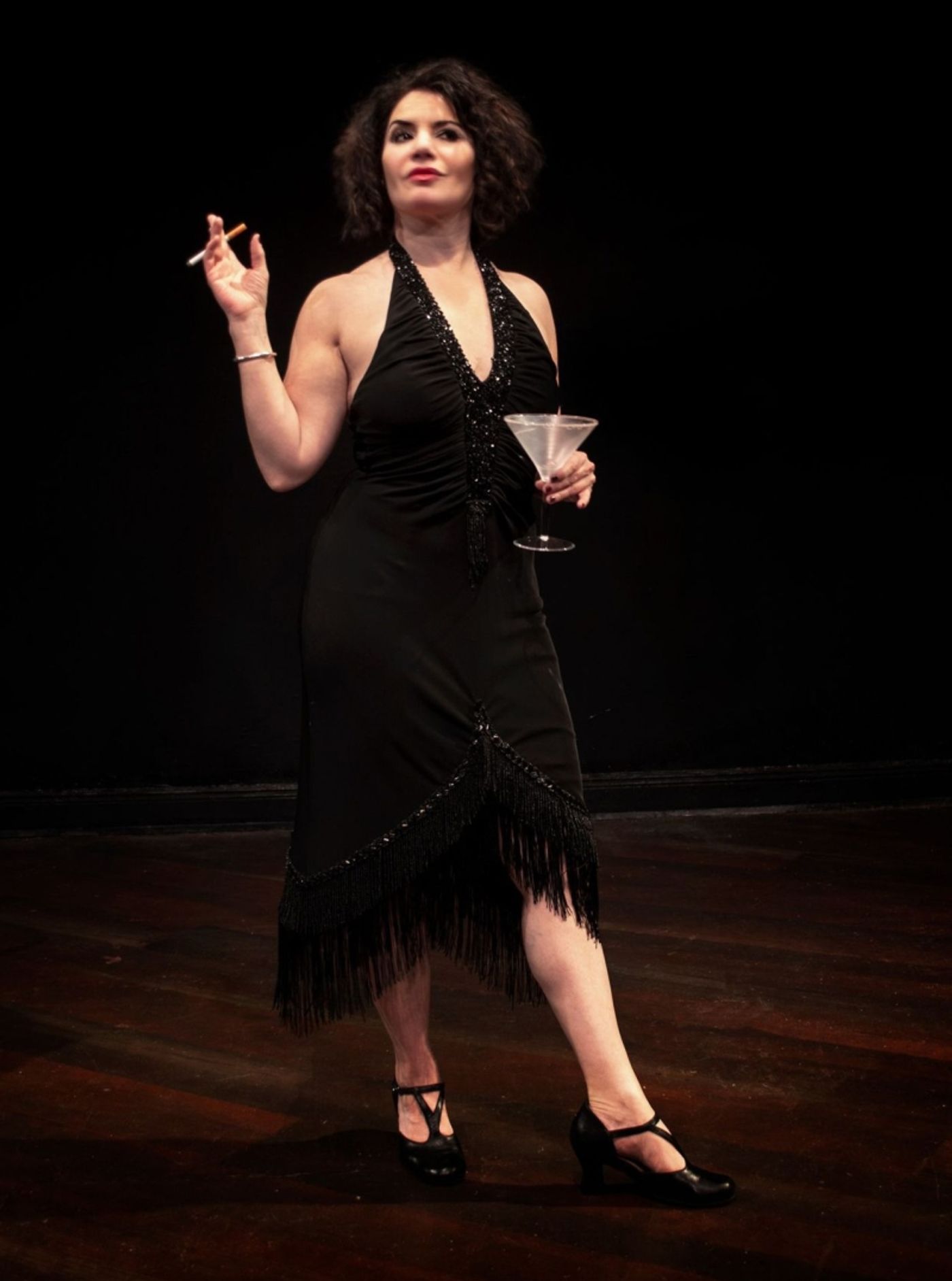 The West Coast premiere of Garden of Alla: The Alla Nazimova Story, written and performed by Romy Nordlinger and directed by Lorca Peress, runs from July 7 through July 23, with performances on Fridays and Saturdays at 8 p.m. and Sundays at 2 p.m. at Theatre West, located at 3333 Cahuenga Blvd. West in Los Angeles, CA 90068 (across the street from Universal CityWalk). Screenings of two classic Nazimova films will follow the performances on Saturday, July 8 (Salomé) and Saturday, July 15 (Camille). A talkback with Martin Turnball, author of the 9-book Hollywood's Garden of Allah series, follows the July 9 performance. Tickets are $35 with online advance purchase, or $40 at the door, with metered street parking available, or in a paid lot ($10 cash only) across the street from the theater. For reservations and information, call (323) 851-7977 or go to TheatreWest.org.
The West Coast premiere of Garden of Alla: The Alla Nazimova Story, written and performed by Romy Nordlinger and directed by Lorca Peress, runs from July 7 through July 23, with performances on Fridays and Saturdays at 8 p.m. and Sundays at 2 p.m. at Theatre West, located at 3333 Cahuenga Blvd. West in Los Angeles, CA 90068 (across the street from Universal CityWalk). Screenings of two classic Nazimova films will follow the performances on Saturday, July 8 (Salomé) and Saturday, July 15 (Camille). A talkback with Martin Turnball, author of the 9-book Hollywood's Garden of Allah series, follows the July 9 performance. Tickets are $35 with online advance purchase, or $40 at the door, with metered street parking available, or in a paid lot ($10 cash only) across the street from the theater. For reservations and information, call (323) 851-7977 or go to TheatreWest.org.

Videos

